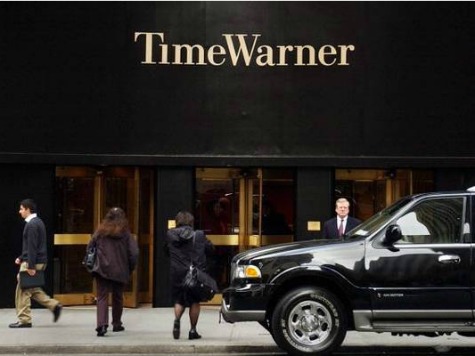The New York Times is reporting that Time Warner as we know it is soon to be no more, with the corporation letting Time Magazine and its print subsidiaries trek out on their own. With the print industry near collapse and plans for further integration of business and editorial, the magazines’ future is now uncertain.
Plans to split the television and online properties from Time Magazine and its many sister publications were announced last March, a bold but not wholly unsurprising move from CEO Jeff Bewkes, who also spun off the conglomerate from AOL. The magazines affected cover almost every aspect of pop culture media, from the eponymous flagship to People to Sports Illustrated. Having been run by three different CEOs in as many years, the incumbent Joseph Ripp is said to have a different approach than his predecessor, Laura Lang, and the public excitement for varying Time Inc.’s media portfolio begs the question of whether even Time itself believes in the print industry anymore.
Ripp tells the New York Times two very interesting and radical changes are coming to the way Time’s magazines do business. The first is that the corporation hopes to expand out of the print industry, something severely hindered by its association with Warner properties with which it could not actively compete. This means that the magazine brands will increasingly begin to churn out more audio, video, and online content, and the corporation will attempt to expand to hold more conferences.
The second move has, according to the Times, journalists far more worried: “Time Inc. will abandon the traditional separation between its newsroom and business sides.” This means that the business end will have some authority over the journalists. It also opens the door for innovations in advertising new to online media that even in their native habitat open a Pandora’s box of ethics questions. Native advertising techniques common at websites like Buzzfeed or magazines like The Atlantic lead editors to generate content with advertisers in mind that does not explicitly sell a product. Good sponsored content interests the reader while only lightly brushing the subject matter of the advertiser’s expertise, like this travel post on Buzzfeed paid for by Mini USA. Bad sponsored content steals from online forums or promotes controversial causes without getting anyone to actually like them, ostensibly why they paid for the ad. The less obvious or political the advertising content, the less ethically dubious– as exemplified by The Onion’s parody “sponsored content” praising the Taliban.
So does the collapse of the wall between business and editorial mean that Time will become the next Buzzfeed?
Ripp told the Times that “service journalism can be different,” which the newspaper interpreted to mean sponsored content in cooking magazines and lifestyle publications without an overtly political edge. But the question has been raised that the existence of sponsored content and native advertising at a corporation at all raises questions of what money is trading hands behind closed doors, which could be lethal to the reputation of a bona fide journalistic venture.
What the incorporation of business interests into editorial will mean for Time‘s ethical record remains to be seen. And this move is certainly only a small part of how the new Time, Inc. will function. Ripp also said layoffs are coming to the company despite the brave new world outside of print magazines, in which Ripp said his company was “always restricted.”
One wonders if the restriction had more behind it than just competition with Time Warner properties. The print industry is in dire economics straits, and Time Warner could have seen this as an opportunity to amputate a diseased limb before the infection spread. While Time Warner CEO Bewkes said in March that one reason for the split was for Time, Inc. to “also benefit from being a standalone public company able to attract a more natural stockholder base,” it is difficult to see benefit to the company he is about to lose as a major reason for Bewkes’ decision. It is at least as tempting to believe this reason for the split is the toxic nature of the print business as it is to believe that Ripp was eager to expand into multimedia outside of print, as both lead to the same conclusion: no one wants to just publish magazines anymore.

COMMENTS
Please let us know if you're having issues with commenting.